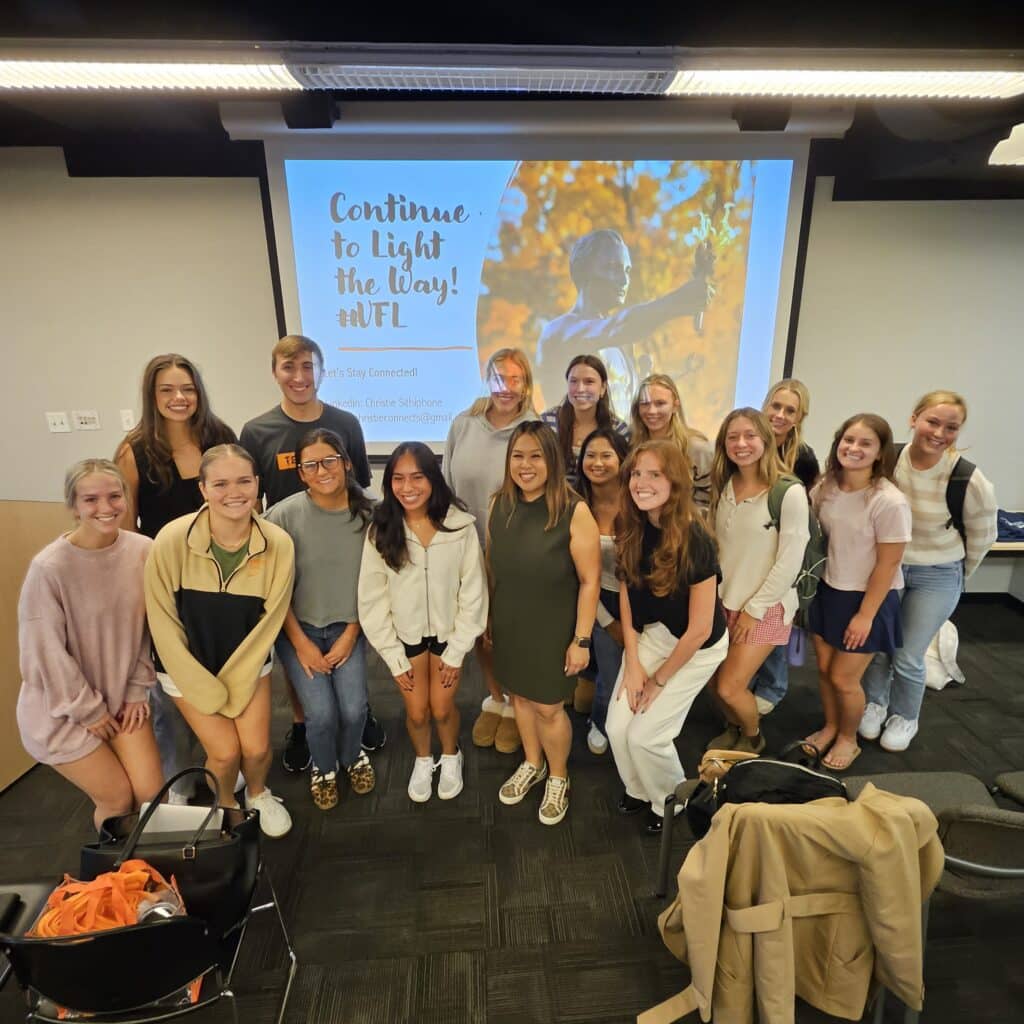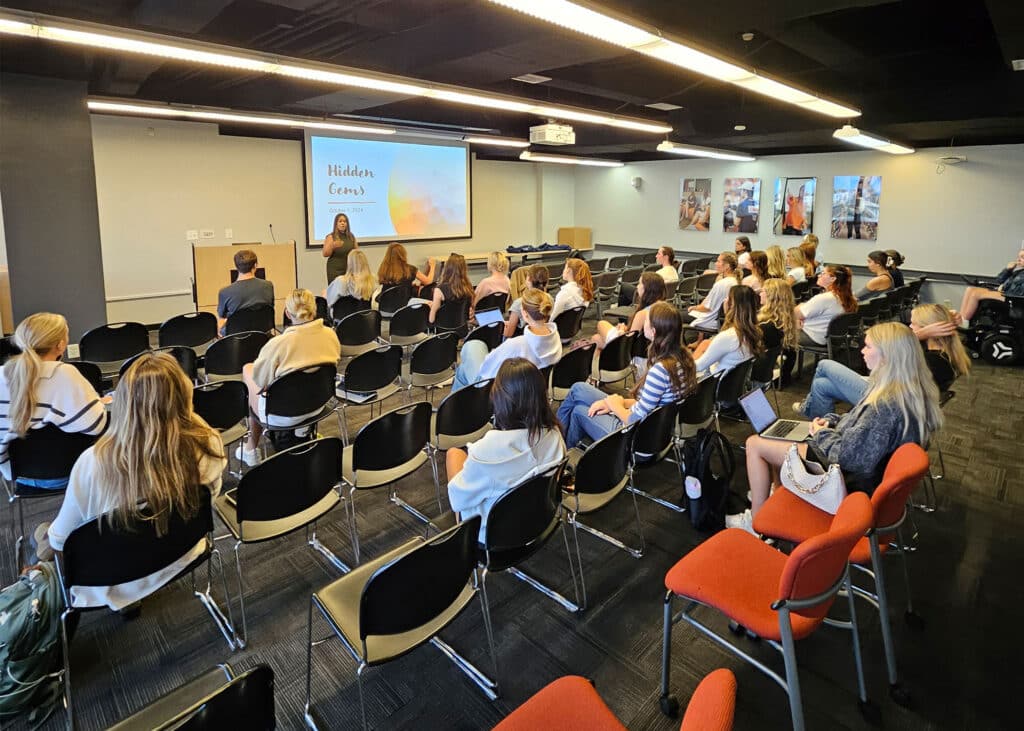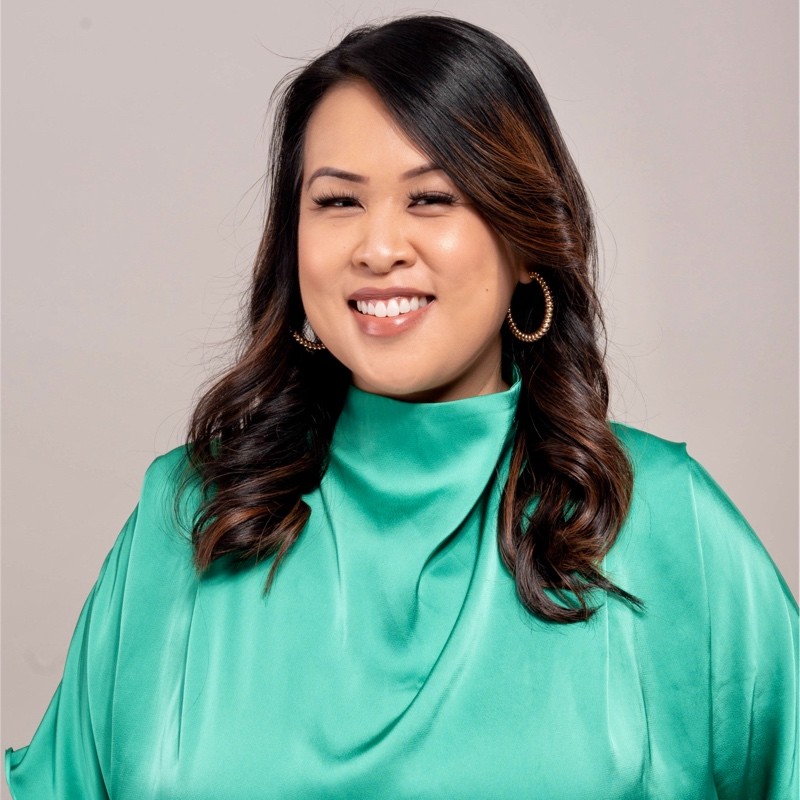Christie Sithiphone (’09) calls herself a lifelong learner.
Even as the vice president of inclusion and engagement for Marina Maher Communications (MMC), Sithiphone says she’s not above any task.
In October, Sithiphone returned to her alma mater to speak to University of Tennessee, Knoxville, students about the skills they need in the real world that they may not necessarily learn about in the classroom.
Growing up, Sithiphone attended a small high school in Middle Tennessee. As high school graduation was approaching, she knew she wanted to go to a large university with a popular sports team and ample opportunities to meet new people, but she wasn’t quite sure what she wanted to study.
“When I was a junior in high school, I took this class called speech communications. I’ve always been stronger in literature classes, English, and social studies,” she explained. “As I was trying to figure out what I wanted to major in, in college, my speech communications teacher said, ‘You know, you should consider public relations.’ At the time, I didn’t even know what that was.”

After researching, Sithiphone realized she agreed with her teacher and wanted to pursue PR in college.
“What I liked about PR is that you can be more objective. You can represent and be at that intersection of business and communications,” she said.
Sithiphone looked at colleges outside of Tennessee but decided to take advantage of in-state tuition and scholarships.
“I graduated high school in 2005 and we were the second class ever to receive the Hope scholarship,” she stated.
While at UT, Sithiphone majored in public relations with a minor in business.
She was the president of the Asian American Association, a member of the Public Relations Student Society of America (PRSSA), a member of the Women’s Coordinating Council, and part of the College of Communication and Information’s Diversity, Equity, and Inclusion student committee.
Since graduating from UT, Sithiphone said her career has been a “happy accident.”
“When I graduated in Spring ‘09, the housing market had crashed the year before, so it was just impossible to find a job,” she explained. “I had to take a sales job. I worked in a management consulting firm doing business development and client account management. I was an executive recruiter at one point and worked at CareerBuilder. I worked for a nonprofit job at one point. Still, everything I did had a diversity, equity, and inclusion lens, a presenting piece, a learning and development piece, or a leadership development piece.”
Sithiphone said every job she took brought her to her current position with Omnicom Holding Company and led her to start working in DEI, overseeing diversity equity, and inclusion, as well as employee engagement, learning, and development.
Sithiphone says, that although hard skills are important, “hidden gems” are what can make someone stand out to employers.
“Meaningful relationship building, getting a mentor, joining peer groups, and continuing to put yourself out there and just showing up can make a difference,” she said. “Always be curious. Asking really good questions is important.”
During her presentation at UT, Sithiphone shared her story about how involved she was on campus. She told students the skills she learned in her extracurriculars have benefited her personally and professionally. She encouraged students to never say “No” to an opportunity.

“It could just be that I’m a volunteer for an event and doing check-in, but guess what? I’m the first person that anyone sees. There could be someone very senior and my role is just to talk about the event, the organization, whatever it is. But I have my pitch down for exactly what my role is and what I should be doing. By doing that, I get so much better at public speaking. I’m so comfortable talking to anyone,” she said as an example.
Sithiphone added that “your net worth is based on your network” and when people can advocate for you, you never know how many more doors will open.
As a DEI leader and professional she said, ”If I want to support being an ally, an advocate, and an activist, then I need to have friends, colleagues, and peers who don’t look like me.”
Sithiphone tells students they have the power to make a difference in their own lives and the lives of others.
“I think we all have a role to play in ensuring that we’re committed to making sure that the world is inclusive. That was a message that I drove home for PRSA. We all have a part to play when it comes to driving an equitable and inclusive culture,” she said.
In just the past several years, Sithiphone has landed herself on two forty-under-forty lists—one for the Georgia Trend Magazine and the other for the Atlanta Business Chronicle. She said it was a full circle moment to be able to come back to her alma mater to share her story and encourage others to just say “Yes” to any opportunity that comes their way.

